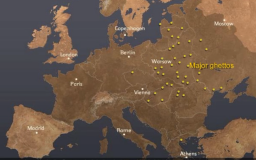You searched for: poland
<< Previous | Displaying results 1441-1450 of 1578 for "poland" | Next >>
-
Henry J. Kellermann describes the reactions of defendants during the Nuremberg Trial
Oral HistoryHenry received a Doctor of Law (J.D.) degree from the University of Berlin in 1937. Sponsored by the rabbi of the Baltimore Hebrew congregation, Henry immigrated to the United States in the same year. In 1945, the Office of Strategic Services (OSS) assigned him to prepare pre-trial briefs for the International Military Tribunal held in Nuremberg, Germany. He interrogated a number of witnesses and defendants. After the war, he held various diplomatic posts.
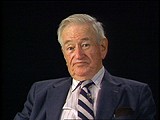
-
Sarah (Sheila) Peretz Etons describes her experiences as a child in hiding
Oral HistoryGermany invaded Poland on September 1, 1939. After the German occupation, Sarah (then just three years old) and her mother were forced into a ghetto. One day, a Polish Catholic policeman warned them that the ghetto was about to be liquidated. He sheltered Sarah and her mother first in his house, then in a potato storage bunker, and then in a chicken coop on his property. Sarah hid there for more than two years, until the area was liberated by Soviet forces. After the war, Sarah emigrated from…
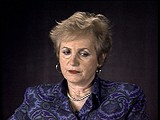
-
Morris Kornberg describes arrival at Auschwitz
Oral HistoryMorris grew up in a very religious Jewish household and was active in a Zionist sports league. When the Germans invaded Poland in September 1939, Morris's town was severely damaged. Morris's family was forced to live in a ghetto, and Morris was assigned to forced labor. After a period of imprisonment in Konskie, a town about 30 miles from Przedborz, Morris was deported to the Auschwitz camp. He was assigned to the Jawischowitz subcamp of Auschwitz. In January 1945, Morris was forced on a death march and…
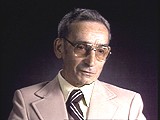
-
Lilly Appelbaum Malnik describes death march from Auschwitz to Bergen-Belsen
Oral HistoryGermany invaded Belgium in May 1940. After the Germans seized her mother, sister, and brother, Lilly went into hiding. With the help of friends and family, Lilly hid her Jewish identity for two years. But, in 1944, Lilly was denounced by some Belgians and deported to Auschwitz-Birkenau via the Mechelen camp. After a death march from Auschwitz, Lilly was liberated at Bergen-Belsen by British forces.
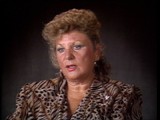
-
Einsatzgruppen massacre sites in Ukraine and surrounding areas
MapIn the summer of 1941, following Germany's attack on the Soviet Union, the Germans began to perpetrate mass shootings of Jewish men, women, and children in territory seized from Soviet forces. These murders were part of the “Final Solution to the Jewish Question,” the mass murder of Europe’s Jews. Many of these mass shootings were organized and committed by task forces or special action groups, called Einsatzgruppen in German. Units of Einsatzgruppen followed the German army as it invaded the Soviet…

-
Miles Lerman describes the impact of his wartime experiences
Oral HistoryMiles Lerman was a Holocaust survivor, partisan fighter in the forests of Poland, international leader in the cause of Holocaust remembrance, and a "founding father" of the United States Holocaust Memorial Museum.
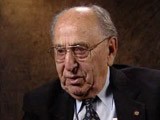
-
Hans Heimann describes internment in Italy
Oral HistoryThe Germans annexed Austria in March 1938. In 1939, Hans fled first to Hungary and then to Italy. He and his parents were interned in various towns. Hans's father became ill and died in 1940. In 1943, Hans and his mother were warned of German plans to deport Jews from Italy to Poland. They moved to smaller towns until liberation by the British in August 1943. Hans worked as an interpreter for the Allies until 1945, when he worked for the American Jewish Joint Distribution Committee and helped resettle…
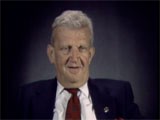
-
Guta Blass Weintraub describes Starachowice ghetto cultural life
Oral HistoryGuta and her family fled to Starachowice, Poland. There, the Germans ordered them and other Jews into a ghetto and put them to work in forced-labor factories. As an act of resistance at the Majowka camp, Guta attacked a Nazi guard preparing to shoot her and other prisoners at a mass grave. A bullet grazed her, but Guta pretended to be fatally wounded. Days later, Guta was deported to Auschwitz, then Ravensbrueck, where she was liberated. Her mother died only weeks short of freedom.
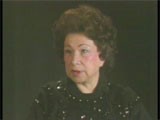
-
John Komski describes resistance activities in Krakow, including an underground newspaper
Oral HistoryJohn, who was born to a non-Jewish Polish family, graduated from an art academy. Following the German invasion of Poland on September 1, 1939, John was in Krakow. Food became scarce in Krakow, with long lines of people waiting for whatever food was available. John decided to join the resistance against the Germans. By early 1940, he and two of his friends felt that they were in danger and decided to try to escape to France. John was caught and arrested during this escape attempt. He survived imprisonment…
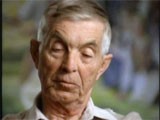
-
Resistance
Animated MapView an animated map describing acts of resistance to Nazi oppression, ranging from armed resistance to acts of spiritual preservation.
